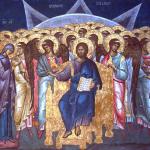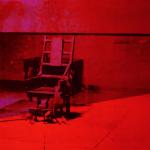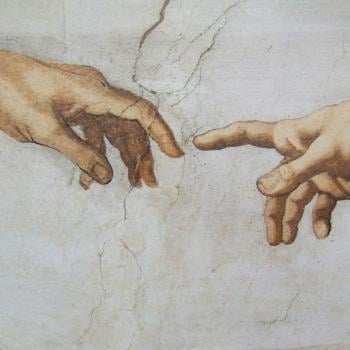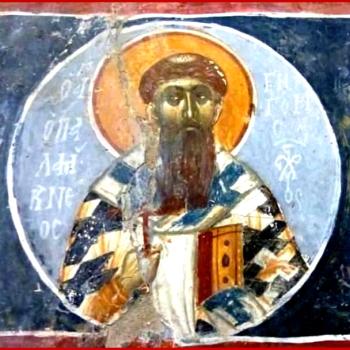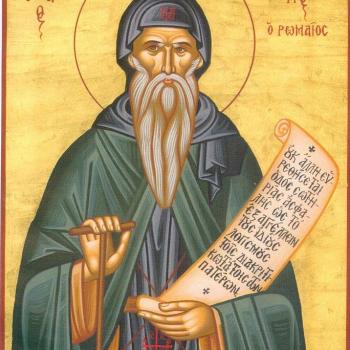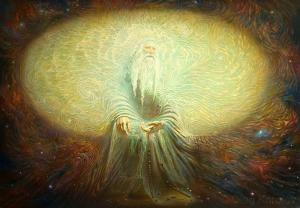
God truly is all-deifying, acting and working with creation, matter and spirit, seeking to elevate it with grace. All things can receive and partake of God’s divine energies for themselves. Deification is meant for all creation. And we find that everywhere God is present, God is willing to purify, illuminate and perfect those given free will with grace, so that God can be and will be present to them in their perfection:
Truly, my beloved in the Lord, not one time only did God visit His creatures; but from the foundation of the world, whenever any have come to the Creator of all by the law of His covenant implanted in them, God is present with each one of these in His bounty and grace by His Spirit. [1]
This is said, not only in relation to the spiritual realm of being, but to material being as well. The world and all that is in it has its foundation in the eternal Wisdom of God. All things find their principle coming from, and residing in, God:
Before God began to work in time, he acted like a skilled artisan. He conceived in eternity in his wisdom, which is coeternal with them, the forms of all creatures. These forms are coeternal with that wisdom and are called the “reasons” (rationes) of things in the divine mind, or “ideas,” or “notions.” And these primordial forms of all things are what can be described as primordial causes, reasons of things established from eternity in the divine mind. These are called “causes” because they are prima and universally prime, that is, they are causes in such a way that they had no causes because they are eternal. [2]
These principles are eternal in God, because God is eternal; indeed, they come from and have their foundation in the uncreated energies (activities) of God:
To this we reply that because the primordial causes are above every creature, they are not any created thing; and this is completely true because they are in the wisdom of God from eternity and are identical with it. This wisdom is the primordial cause of all things; that is, God Himself.[3]
Thus, God’s energies, God’s grace, is the foundation for the essence of every given thing, even as it is the source of their existence. This means that everything in creation is embraced by the uncreated energies of God. This does not mean they are absolutely controlled or dominated by those energies. God makes room for creatures who have a will of their own. They are granted freedom, and in that freedom, they have the opportunity to cooperate with grace. If they do, then God will give them further grace and the deification which comes from that grace. This grace affects not only the spirit, but matter as well. The physical world, and all that is contained in it, can be touched by grace, and in its own way, illuminated by the energies of God.
This brings us back to where we started. God is light, and so the energy which is used to predicate the name of light to God can be and should be embraced by all creation. Each element of creation should be able to engage that light in its own way, that is, in relation to the potential given to it by its essence. Thus, the body, and not just the soul, can be deified. Those who have properly embraced the uncreated energies of God, that is, those who have united themselves to it (though prayer and whatever works such grace suggest to them), can and will show that deification in a variety of ways. This will include, but not be limited to, the fact that they will have the light of grace shine through them. That is, just as the glory of God was manifested in and through the body of Christ in the Light of the Transfiguration on Mt. Tabor, grace can transform those who embrace it so that they manifest the light of grace in and through their bodies. Thus, the grace which transforms us in our spirit will also affect our body. Those who have undergone deification will be able to demonstrate this in a variety of ways, both spiritual but also physical:
The intellect that has been accounted worthy of this light also transmits to the body that is united with it many clear tokens of the divine beauty, acting as an intermediary between divine grace and the grossness of the flesh and conferring on the flesh the power to do what lies beyond its power. This gives birth to a godlike, unmatched and stable state of virtue as well as to a disposition that has no or little inclination to sin. [4]
The light is itself not some lesser light, but rather, it is itself the energy of God, and so God. That means we should not see the light as mere symbol which replaces our contact with God. It is one of the ways in which we come into contact with God. In it and through it, we have a true face to face encounter with God, one which is not only spiritual, but also physical, showing that in our deification, our whole being is intertwined with and participates with God, otherwise, as Palamas said, the promises which were given by Christ would prove to be false:
Will the vision face-to-face remain still in the realm of hope? For indeed if even in heaven there are still to be symbols, mirrors, enigmas, then we have been deceived in our hopes, deluded by sophistry; thinking that the promise will make us acquire true divinity, we do not even gain a vision of divinity. A sensible light replaces this, whose nature is entirely foreign to God! How can this light be a symbol, and if it is, how it can be called divinity? [5]
We must uphold that we will truly interact with and embrace God, even if it is not the divine substance as it is in itself. If we deny it is God, we deny the realization of God’s promises, but if we claim it is the very immanent substance of God, we deny God’s transcendence. Thus, we can agree with St. Thomas Aquinas when he said that the divine essence “cannot be seen by any created similitude representing the divine essence,” because it is not a created similitude but God which we see and embrace for ourselves:
Therefore it must be said that to see the essence of God, there is required some similitude in the visual faculty, namely, the light of glory strengthening the intellect to see God, which is spoken of in the Psalm (xxxv.10), In Thy light we shall see light. The essence of God, however, cannot be seen by any created similitude representing the divine essence itself as it really is.[6]
God is known to us and through us by divine activity, so that though we do not know or comprehend the divine essence, we know God. What we know, we can engage. What we engage, we can embrace in ourselves and unite with it, not just in our soul, but with our whole being. This illuminates us, for “…God by His grace unites Himself to the created intellect, as an object made intelligible to it.” [7] God’s grace, the divine energy, unites to the created intellect, allowing us to apprehend God through the intellect, even as it also unites with our physical being, so that in and through the physical being, the glory of God can be apprehended by the senses in a way appropriate to them. The Light of Tabor represents this and shows us what is to come to those who cooperate with grace. Those who engage it, those who open themselves up to it, clearing themselves from all things, all thoughts and desires, which would hinder their union with it, will find God’s graces perfecting them so that they truly are deified and find themselves to be like God in the way God has been revealed in the God-man, Jesus Christ. All are called to this. All are called to be deified. All are called to participate with the uncreated energies of God, in all that they are. Through such engagement, they will find themselves in their proper relationship with God, participating with God in the divine life itself.
[1] St. Antony the Great, The Letters of Saint Antony the Great. Trans. Derwas J. Chitty (Fairacres, Oxford: SLG Press, 1991), 6 [Letter II].
[2] Hugh of St Victor, “Sentences On Divinity” in Victorine Texts in Translation: Trinity and Creation. Trans. Christopher P. Evans. Ed. Boyd Taylor Coolman and Dale M Coulter (Hyde Park, NY: New City Press, 2011), 141.
[3] Hugh of St Victor, “Sentences On Divinity,” 141.
[4] St. Gregory Palamas, “To The Most Reverend Nun Xenia,” in The Philokalia: Volume IV. Trans. and ed. G.E. H. Palmer, Philip Sherrard, Kallistos Ware, et. al. (London: Faber and Faber, 1995), 318-19.
[5] St. Gregory Palamas, The Triads. Trans. Nicholas Gendle (New York: Paulist Press, 1983), 73.
[6] St. Thomas Aquinas, Summa Theologica: Volume One. Trans. Fathers of the English Dominican Provence (New York: Benzinger Brothers, 1948), 50 ( I-12.2)
[7] St. Thomas Aquinas, Summa Theologica: Volume One, 52 ( I-12.4)
Stay in touch! Like A Little Bit of Nothing on Facebook.
If you liked what you read, please consider sharing it with your friends and family!


